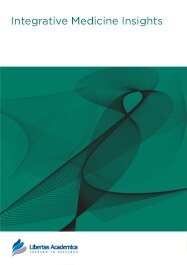

Publication Date: 30 Apr 2007
Journal: Integrative Medicine Insights
Citation: Integrative Medicine Insights 2007:2 25-34

Background: Omega-3 (n-3) polyunsaturated fatty acids (PUFAs) have modulating effects in several chronic inflammatory conditions. The aim of the present study was to test whether prior short-term dietary supplementation with n-3 (fish or seal oil) or n-6 (soy oil) PUFA rich oils would protect the development of dextran sulfate sodium (DSS)-induced colitis in rats.
Methods: Forty-eight male Wistar rats were divided into 6 groups: no intervention, sham, DSS, seal oil + DSS, fi sh oil +DSS and soy oil + DSS. Following 7 days of acclimatisation, 1 mL oil (seal, fish or soy) or distilled water (sham) was administered by gavage day 8 to 14. Colitis was induced by 5% DSS in drinking water from day 15 to 21. Rats were sacrificed on day 23. Histological colitis (crypt and inflammation) scores, faecal granulocyte marker protein (GMP) and quantitative fatty acid composition in red blood cells were measured.
Results: Pretreatment with fish or seal oils did not significantly influence DSS induced inflammation. In fact, all the oils tended to exacerbate the inflammation. Soy oil increased the mean crypt score (P < 0.04), but not the inflammation score or GMP. The ratio of n-6 to n-3 fatty acids (FAs) was 11 to 1 and 10 to 1 in standard diet and in red blood cells of control rats, respectively. Following administration of DSS, the ratio fell in all treatment groups (P < 0.001). The lowest ratios were seen in the groups receiving DSS + fi sh or seal oils (around 6 to 1).
Conclusion: Short-term pretreatment with fish or seal oils did not protect against subsequent induction of colitis by DSS in this rat model. Whether the high ratio of n-6 to n-3 FAs in the standard diet concealed effects of n-3 FA supplementation should be further investigated.
PDF (493.95 KB PDF FORMAT)
RIS citation (ENDNOTE, REFERENCE MANAGER, PROCITE, REFWORKS)
BibTex citation (BIBDESK, LATEX)

I found the submission management system for Evolutionary Bioinformatics to be one of the most user-friendly around. The peer review was very rigorous and constructive. Support staff were polite and furnished accurate information almost instantly. I strongly recommend other scientists to consider this journal.
Facebook Google+ Twitter
Pinterest Tumblr YouTube